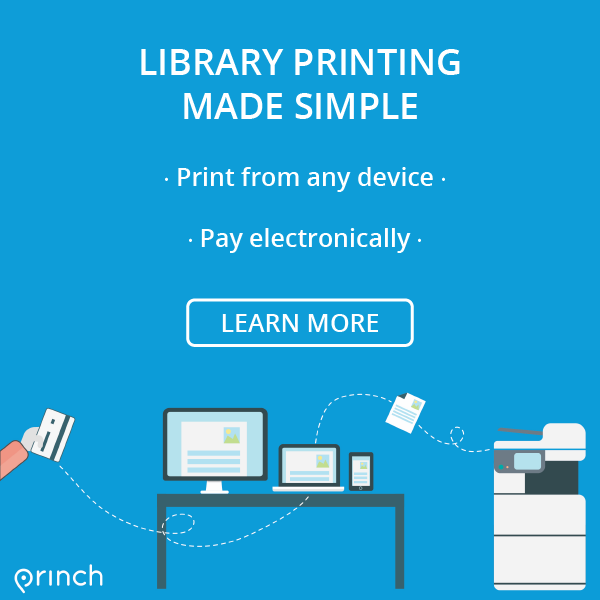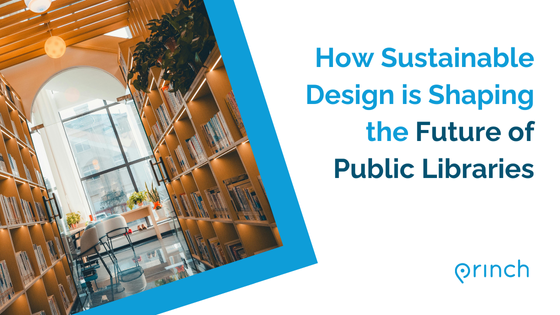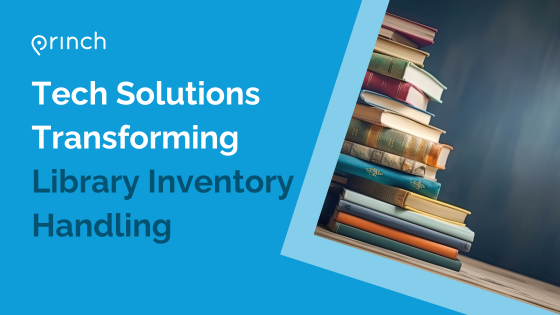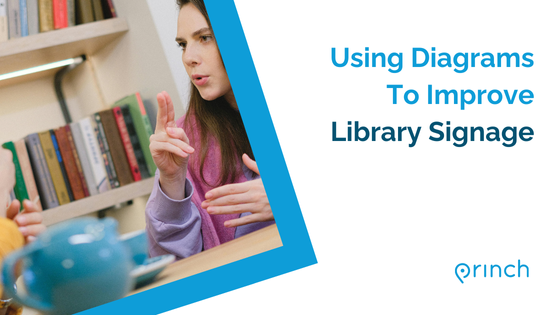Listen in your favourite player
In our first episode of the Princh Library Lounge our host Vicky Woolbarn talks with Jane Cowell and Nick Poole about library neutrality and how it plays a part in the day to day of libraries. Our guests are Jane Cowell, Chief Executive Officer at Yarra Plenty Regional library in Australia and Nick Poole, Chief Executive Officer at Charted Institute of library and information professionals (CILIP) in the UK. Check out this episode to hear all the great insights they shared with us!
Summary
What is library neutrality in today’s world? Should libraries remain neutral, how can this be done or are they even neutral to begin with?
To explore this topic, we have asked Jane Cowell and Nick Poole to join us for a discussion. Through their expertise and experience in the world of libraries, our guests gave us insights on what it means for a library to be neutral, or if it is even possible for one to be neutral.
The Princh Library Lounge is hosted by Vicky Woolbarn, a Library Innovation Specialist at Princh. Below is a short summary of the different insights our guests provided us. Check out the first episode to hear the great discussion we had!
Can libraries be neutral? And what does the term ’library neutrality’ mean for our guests?
Jane starts the discussion by saying that libraries certainly need to be neutral from a political point of view, as they cannot advocate for one party or another. All they can do is provide fact-based information, so from this people themselves can choose. However, in the case of social issues, it is quite the opposite as libraries cannot be neutral. Jane believes libraries should play an activist role in social inclusion.
Nick’s perspective is that what libraries offer cannot be considered neutral, to begin with. The values that libraries represent play an activist role both politically and socially.
To learn more about their thoughts on whether libraries are neutral or not listen to the Princh Library Lounge Episode 1.
What is it that libraries can do to actively take part in social inclusion?
Jane adds that there are many ways a library can play a role in social inclusion. One of the roles of libraries is to educate people. Furthermore, educate them about refugees, non-traditional families and more. She thinks libraries are well-positioned to fight against racism, discrimination and fear.
Nick views libraries as a place for universality and equality. In libraries, everybody’s voice is heard, everybody’s story gets told and everybody feels safe and empowered. He agrees with Jane, that since libraries are a safe place, people reconcile within them and are more open to learn about those who they initially feared.
And what could libraries do for those who are in a financially tough situation?
From Jane’s point of view, wealth inequality across the world is large, wealth is concentrated across fewer families, and because of that many families in the UK and Australia are locked out of prosperity. These people are often people who do not possess skills that are relevant and needed in today’s world. Also, people who live in poverty often do not have internet access, which locks them out of the education system. Libraries are already trying to help this issue, but Jane sees further possibilities of improvement.
Nick mostly agrees and expands on the topic of the internet. In his opinion, while it has erased some inequalities, it has also created new ones as well. Libraries need to actively target and tackle these inequalities. Another challenge that CILIP faces is communicating towards all political parties. The importance of this is that politicians can help empower libraries and its users.
What new services can libraries offer in partnership with councils?
In Australia, the State Library of Queensland has been working on a project for young, aspiring entrepreneurs in partnership with the local council. These events would provide information to people about how to start a business, how to tell whether their business idea can be executed or not, whether their idea is good or not and how to deal with life in the business world. Based on what has transpired on these events, Jane is positive that libraries can facilitate entrepreneurship and entrepreneur thinking with the help of the local council.
To learn more about how libraries can partner with local councils to help the people in need, listen to the Princh Library Lounge Episode 1.
And how about the library staff? How can they as information professionals remain neutral?
In Britain, Nick points out that figures show that the library profession is predominantly white and within an older age demographic. And this raises multiple questions: are their personal backgrounds, believes and biases affecting their decision making? Or can they fully represent the diversity of the society they are serving? How can libraries diversify themselves?
The figures are similar over in Australia too, But both Jane and Nick see a solution to this problem.
That is…
In both Jane’s and Nick’s point of view, the solution is community involvement.
To learn more about how the library profession can be neutral in their views, listen to the Princh Library Lounge Episode 1.
Who then makes the decision to drive an agenda or what programs or services to offer? And can those decisions be considered neutral from a political point of view?
Nick’s experience throughout the years shows that librarians and libraries represent their own values, which in some cases might not be the same as the ones the institutions have. At the same time, these institutions are often part of a local government, which has its own set of values. Sometimes these ethics clash, and one of the fundamental places where this is happening is internet filtering.
Jane adds that, in Australia, governments have to accept the Public Library UNESCO Manifesto and the ALIA statement on freedom of access, which means they cannot use filtering. Jane also raises the question; why is filtering important and what are governments concerned about? Jane believes that filtering can be avoided, as long as librarians have the necessary skill set and policies to step up against the issues that filtering would solve. Sometimes it is about going against the institution. But instead of going against the institution, the library’s role is to persuade the institution that they need to move on this issue.
Is it the duty of the library professionals to keep users secure?
In Nick’s opinion, yes it is. It is the duty of librarians to educate people about what is safe and secure for them, how data works, and the ins and outs of privacy and confidentiality. He thinks library professionals should be using their ethics and insights as information professionals to make informed and balanced choices on behalf of the society to keep people safe, but also maximize the benefits of access to knowledge.
Jane also finds that one of the key challenges is the teaching and raising of new librarians.
To learn more about Jane’s thoughts on what are the duties of libraries and library leaders in the digital world, listen to the Princh Library Lounge Episode 1.
Just to round things up; are libraries seen as a neutral and safe place?
Jane hopes that people will associate libraries with safety and that people will find libraries a place where they can go for communication. She also hopes that libraries will be able to bring people together and start a conversation.
In Nick’s perspective libraries have gone through a bit of an existential crisis with the appearance of the internet but have now found their place. He adds that it is their function that matters, not their form. Libraries have redefined their roles in the digital age, and Nick encourages everyone to celebrate this new age.
To gain all the insights from our guests, Jane Cowell and Nick Poole, listen to the first episode of the Princh Library Lounge, launching on February 5th!
Resources used
● Article. Are libraries neutral by Emily Drabinski
● Article. Debating your humanity or are libraries neutral by Chris Bourg
● Article. Are libraries neutral by James LaRue
● Article: Are Libraries Neutral? by American Libraries Magazine
● Article: Libraries and Rainbows: the importance of action, however small by Jane Cowell
● Twitter Profile: Jane Cowell
● Twitter Profile: Nick Poole
Subscribe now and receive our insights from libraries around the world
Subscribe now and receive our insights from libraries around the world














